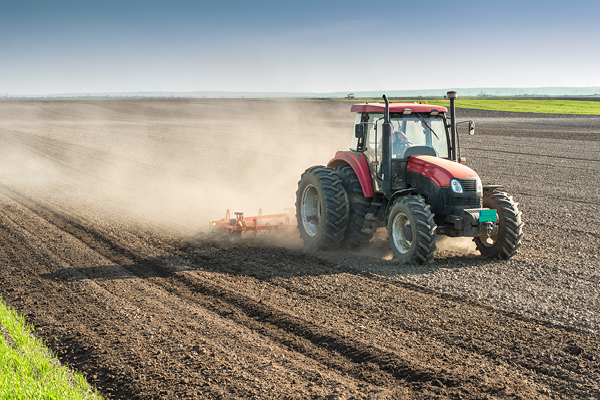
New Report: More Awareness on Challenges and Concerns “Big Data” Poses for Farmers Needed in Canada
A new report from researchers at the Canadian Centre for the Study of Co-operatives (CCSC) and the Johnson Shoyama Graduate School of Public Policy (JSGS) outlines how Canadian agriculture is addressing concerns about big data in the agriculture sector.
By Stan Yu, Research and Communications Coordinator, Canadian Centre for the Study of Co-operativesLike many other sectors, the agricultural sector is changing rapidly due to major developments in digital “smart” technologies. Smart farming is based on deploying remote sensing devices in agricultural equipment such as tractors, planters, crop sprayers, and combines in the grain and oilseed industries and in robotic milkers and ear tags in the dairy, beef, swine, and poultry industries.
Smart devices in farm equipment and machinery create and provide a wide variety of “small data,” which is specific to a farm/ranch and can be used to track crop growth or animal/milk production on the farm. While small data has some value on its own, the real value emerges with the creation of “big data.”
Big data is created when an agricultural technology provider (ATP) combines the data of many farmers with data from other sources (e.g., weather). This data can then be analyzed with proprietary algorithms to provide recommendations, such as a particular seed, fertilizer, and chemical combination to use on your farm that can improve yields, environmental outcomes and/or economic return.
“While big data can provide significant value for farmers and ranchers, it also creates a set of problems and challenges,” says Dr. Murray Fulton (PhD), professor at the Johnson Shoyama Graduate School of Public Policy (JSGS), and a Research Fellow at the Canadian Centre for the Study of Co-operatives (CCSC). “Farmers—whether they are in the United States, the European Union, Australia, New Zealand, or Canada—lack trust in this technology. They have expressed concerns about whether their data are private, secure, and being used without their knowledge.”
In the United States, a 2016 survey by the American Farm Bureau Federation found that 77% of respondents expressed concerns about data sharing, while a survey of Australian farmers found a lack of trust among farmers in how their data is being collected and handled. Three out of four also reported that they knew little about the terms and conditions in their agreement with ATPs.
Agri-business and farm organizations in the United States, New Zealand, and Australia have responded to this lack of trust by creating voluntary codes of conduct. These codes are typically combined with an accreditation process and the use of a logo that certifies that the ATP is following a set of guidelines for data sharing, security, storage and access. There are currently no voluntary codes in Canada.
One measure that is being pursued in Canada is data portability. Proponents of data portability argue that it will reduce “lock-in” by lowering switching costs. This could create competition within the ATP field and create possibilities for alternative ATP models, including agriculture data co-operatives—organizations that would be owned, governed, and managed by farmers—to emerge. While there is some potential in this area, data portability on its own will not fundamentally address the market power and competition problems created by big ag data. In addition, data portability will apply to consumers and not to farmers in their role as business owners.
For Fulton, the big takeaway is that Canadian agriculture does not appear to be examining and acting on the issues around big data.
“There are options and alternatives out there, but navigating and coordinating change requires researchers, farm leaders, existing farm organizations and businesses, and federal and provincial policy makers to be engaged.” says Fulton, “Our hope is that this report will kickstart the conversations that need to happen.”
The research is led by Dr. Fulton; Dr. Marc-André Pigeon, Director at CCSC and Assistant Professor at JSGS; Dr. Yang Yang, Assistant Professor at JSGS, and Bill Oemichen (PhD student at JSGS). The project is supported by the Social Sciences and Humanities Research Council’s Knowledge Synthesis Grant.

